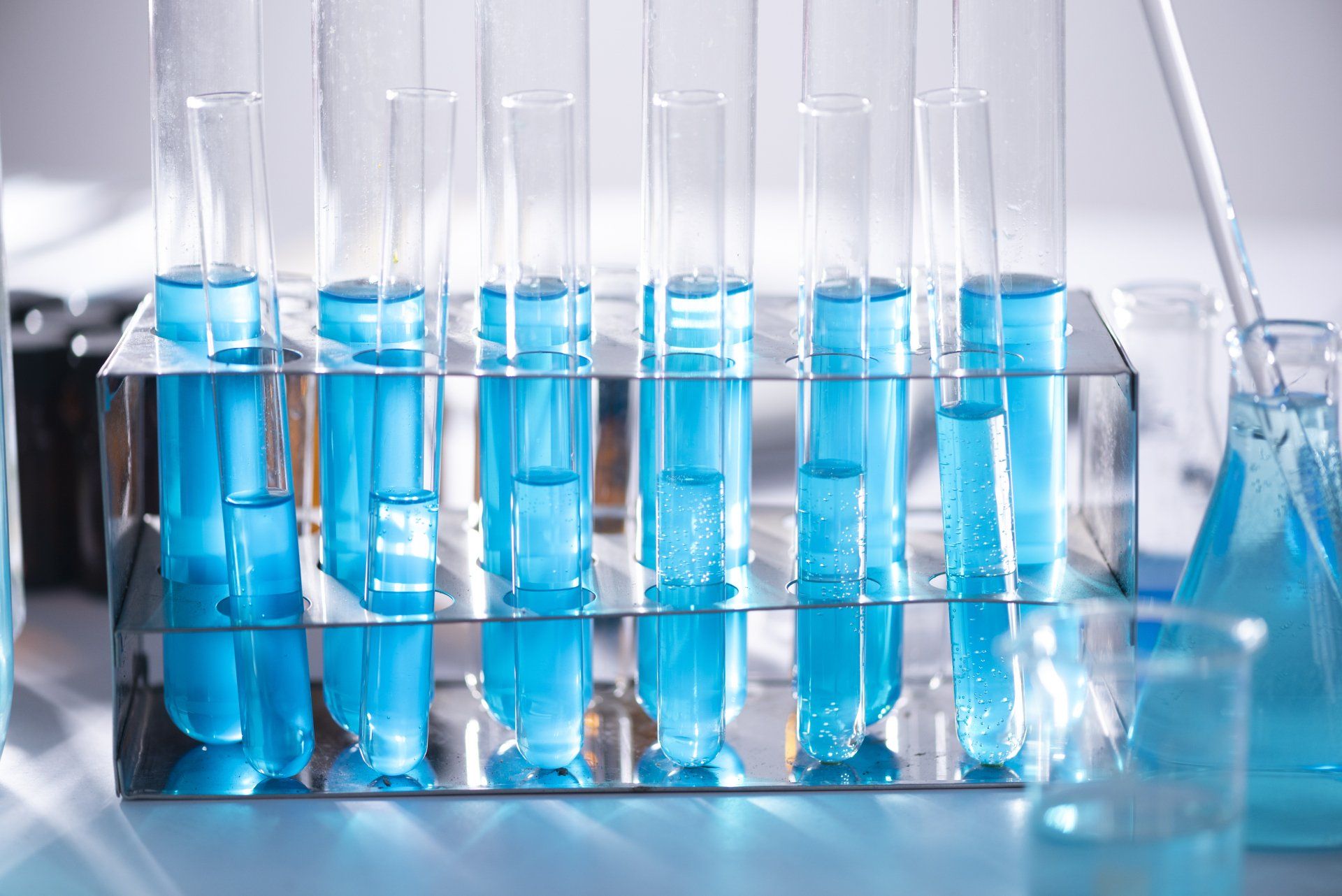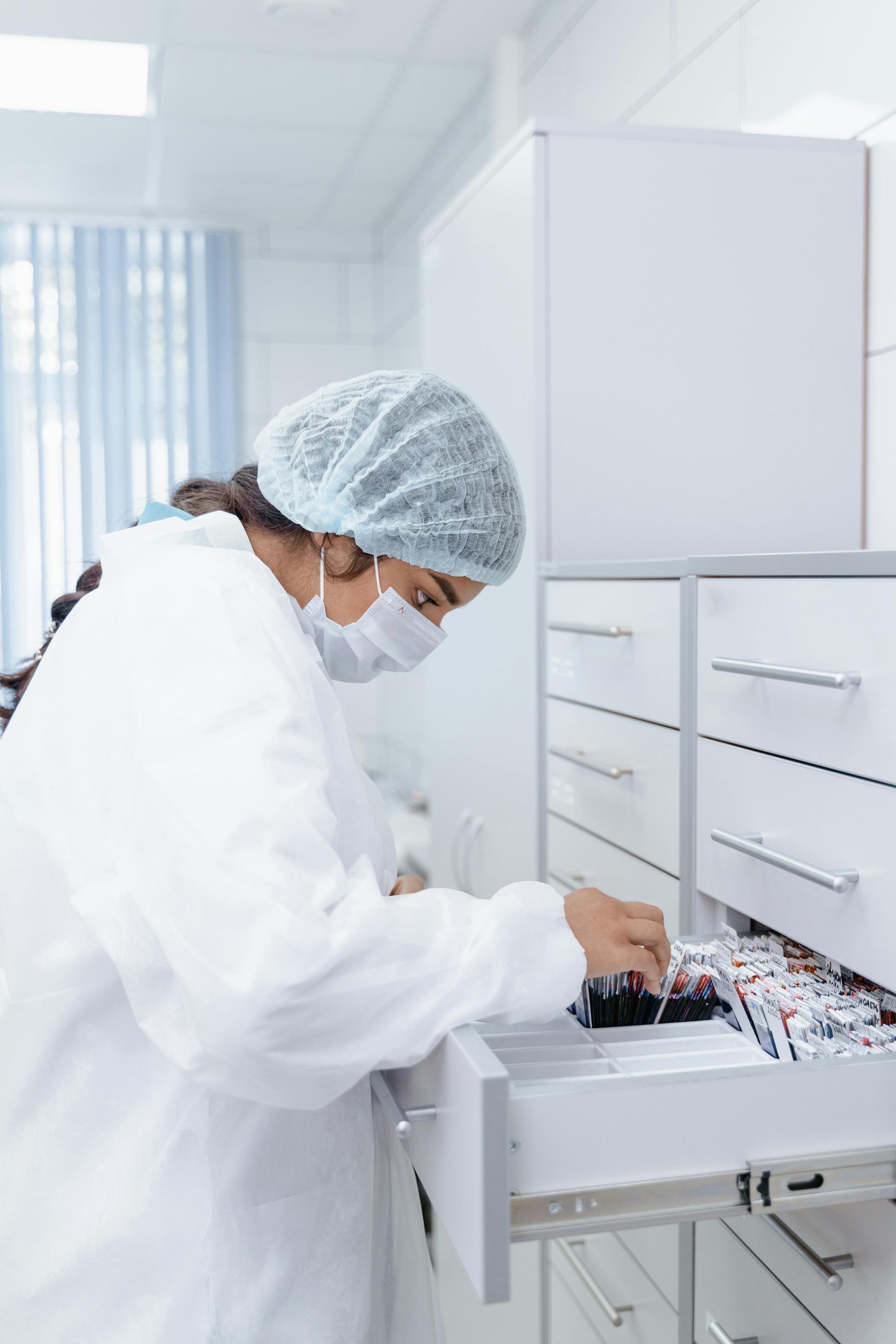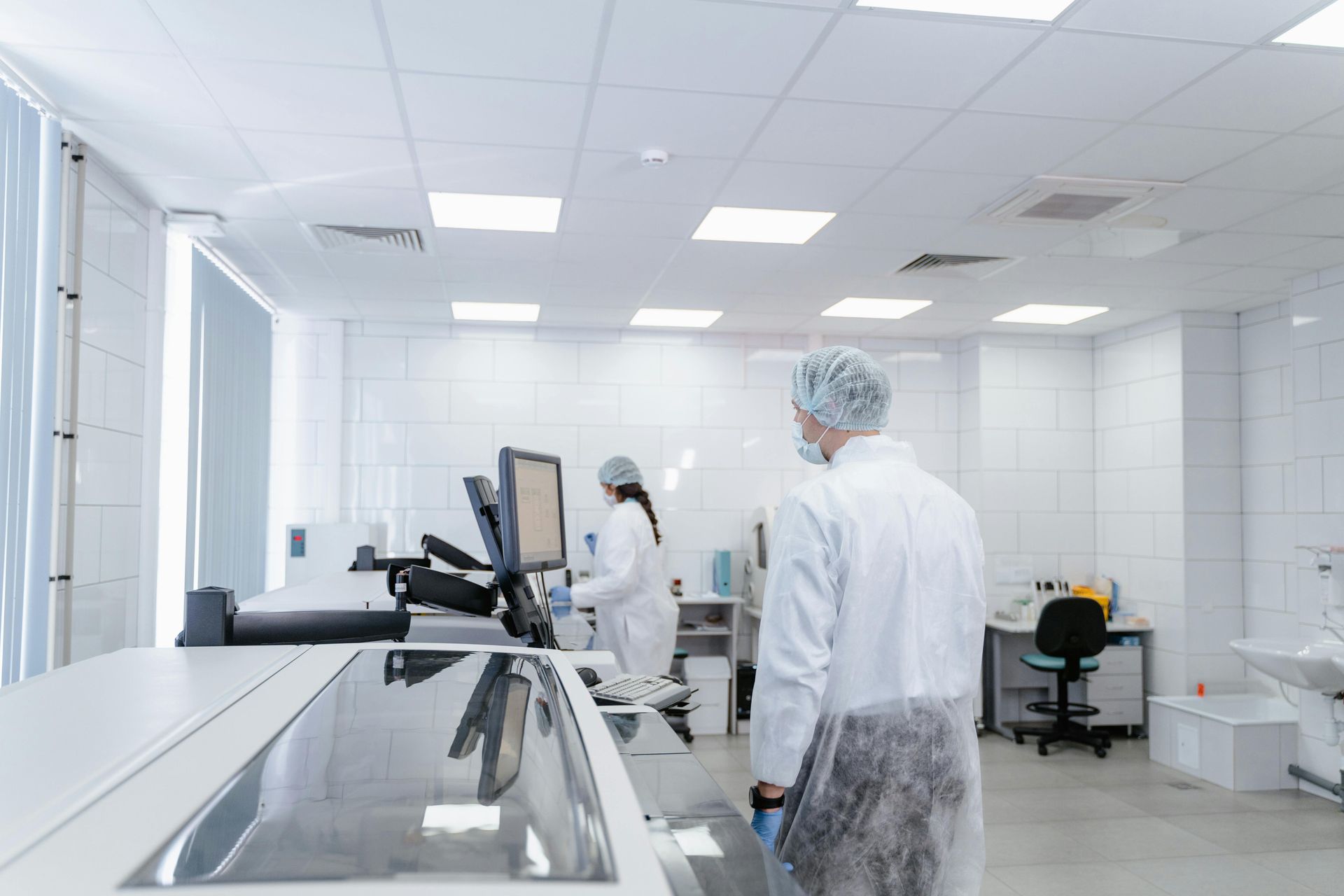What Are Current Good Manufacturing Practices (cGMP)?
Updated August 2023
Understanding cGMP is an essential skill for anybody working in the medical field, particularly in manufacturing where many of these practices apply. Compliance has a direct impact on the health and safety of your patients, your reputation in the medical industry, and your bottom line.
The U.S. Food & Drug Administration oversees the production and delivery of pharmaceutical products, medical devices, dietary supplements, and certain foods to make sure that they are safe and effective for human consumption. Because the safety of these products impacts public health so profoundly, it’s necessary for these government regulations to be stringent and detailed.
- What Is cGMP?
- cGMP Compared to GMP and GLP
- Why Does cGMP Matter?
- cGMP Regulations?
- The Importance of cGMP in the Pharmaceutical Industry
- cGMP Audits & Inspections
- cGMP & Quality Control
- cGMP & Data Integrity
- cGMP in Biotechnology and Medical Device Manufacturing
- cGMP Training & Education
- Take Control of cGMP Compliance with GMP Training from CfPIE
What Is cGMP?

cGMP stands for current Good Manufacturing Practices. These regulations, set by the FDA, dictate the practices and checks medical companies have to follow in order to ensure the safety, effectiveness, quality, and purity of the medicinal products they manufacture and release.
cGMP applies to various industries and markets, from medical device manufacturers to biotechnology firms to pharmaceutical manufacturing facilities. The laws apply to certain processes these businesses undergo:
- Facility and equipment maintenance: The conditions in which manufacturing occurs can impact the safety and quality of the finished product. Medical companies should look at calibrating all plant equipment before beginning operations and following SOPs (Standard Operating Procedures).
- Raw materials: Pharmaceutical manufacturers have a list of raw materials to be used and a specified formula, which must be followed within specified deviation limits.
- Staff readiness: No matter how well-managed the equipment and machinery is, the backbone of medicinal production ultimately lies in the hands of in-house staff. Appropriate training is part of the cGMP requirement.
- Process controls: Not only should you document all workflow procedures, but you must also make sure the steps involved are accurate and up-to-date with the latest medical knowledge.
- Post-release considerations: After a final product leaves the factory, the business is still responsible for other aspects of the process, such as packaging and labeling operations, and preparing for potential recalls or returns.
It is a proactive approach that ensures the safety and quality of pharmaceutical products before they hit the market. You can consult the official FDA rulings on cGMP here.
cGMP Compared to GMP and GLP
cGMP vs GMP
Medical professionals need to make the distinction between cGMP and standard GMP. As expected, GMP simply stands for Good Manufacturing Practice.
The medical community is updating its knowledge and changing its best practices regularly to improve quality and cost. For medical regulations to stay up-to-date, GMP must evolve as well, and cGMP ensures the practices being followed remain current.
Compared to GMP, cGMP works with the most up-to-date rules applicable to your industry, also known as current standards. As a result, it requires additional testing, more steps, and greater investment to maintain compliance.
cGMP vs GLP
GLP stands for Good Laboratory Practice. Both cGMP and GLP ensure the safety and quality of drug products, medical devices, and other pharmaceutical products, and both concepts are driven by the FDA; however, GLP primarily deals with the “laboratory” phases of a product’s production such as toxicology, biocompatibility, and pharmacology studies during pre-clinical development.
cGMP, on the other hand, mostly focuses on phases which happen after the end of the pre-clinical stage such as manufacturing operations, testing, and marketing of the product.
Why Does cGMP Matter?
See why the CfPIE’s Current Good Manufacturing Practices, (cGMP) Training attendees find cGMP training courses beneficial for their career development.
When a business is cGMP-compliant, its internal processes and workflows are properly controlled so that its product output is effective and safe. More specifically:
- Production facilities conform to all hygienic practices and are in excellent condition
- Equipment is calibrated and maintained for safe production
- On-site staff have the proper knowledge and training to operate the facility correctly
- The production process is well-documented and reliable
Both government agencies and patients care that their pharmaceutical organizations are cGMP compliant because it ensures that the medical products they rely on are up-to-date with the latest industry standards when it comes to safety. cGMP reduces the risk of drug contamination or defective medical devices that could threaten patient health.
It’s worth noting that cGMP originally arose when the U.S. government wanted drug manufacturers to take a proactive approach to safety and ingrain a culture of quality within their business environments. GMP laws, much like other types of laws, take some time to evolve as new information arises.
For these reasons, don’t just wait for GMP regulations to be updated; proactively look at what the new best practices are in the industry and adopt them early on.
Evolving cGMP Regulations
The latest and future potential changes to cGMP regulations reflect the dynamic nature of industries like pharmaceuticals, biotechnology, and medical devices. These regulations adapt to technological advances, scientific understanding, and changing global landscapes. Evolutions aim to enhance product quality, patient safety, and regulatory harmonization.
As science progresses, cGMP standards incorporate innovative manufacturing methods, risk-based approaches, and data integrity practices. Stricter oversight, global collaboration, and emphasis on supply chain transparency ensure that evolving cGMP regulations maintain the highest standards and adaptability to emerging challenges.
How Do You Adhere to cGMP Regulations?
It’s best to start implementing cGMP regulations into the production process as early as possible. This way, your company will have a chance to establish meticulous quality control operations from the beginning and minimize the problems that could arise from regulatory compliance issues. A general breakdown of what cGMP adherence looks like involves:
- Quality inspections of your raw materials
- Proper internal controls to minimize deviations from acceptable manufacturing processes
- Assignment of roles to specific staff members for ensuring cGMP compliance
- Reliable testing protocols for discovering and investigating deviations
- Regular review of compliance records and reports
If your business outsources some steps of manufacturing, you are still responsible that the contracted party has a quality assurance system in place. A commitment to drug quality involves defined processes for resource management, GMP training for employees, proper internal communication between management and staff, recordkeeping policies, and product lifecycle management.
The Importance of cGMP in the Pharmaceutical Industry
What does cGMP stand for? cGMP stands for Current Good Manufacturing Practices, but what is cGMP? cGMP is a set of practices that strives to improve the quality and safety of the final product made by every industry that abides by them. Each current good manufacturing practice informs how manufacturers can keep their products safe.
The importance of cGMP in the pharmaceutical industry cannot be overstated. It serves as a cornerstone of quality, safety, and efficacy in manufacturing and distributing pharmaceutical products.
What is cGMP in pharma? cGMP regulations ensure that pharmaceutical companies adhere to strict standards throughout their processes, from raw material sourcing to the final product reaching patients.
By establishing rigorous guidelines for manufacturing, processing, testing, and quality control, mitigates the risk of contamination, errors, and substandard products entering the market - cGMP in pharma is vital for patient safety. This directly translates to better patient outcomes.
cGMP aims to improve each of the following areas of the industry:
Patient safety- Quality assurance
- Product consistency
- Regulatory compliance
- Traceability
- Research and development
- International trade
- Public trust
By complying with cGMP, pharmaceutical companies meet regulatory requirements and demonstrate their commitment to excellence and patient wellness.
cGMP Audits and Inspections
cGMP manufacturing process audits and inspections conducted by regulatory authorities are critical to ensuring compliance with quality standards in pharmaceutical manufacturing facilities.
These assessments verify that facilities and relevant processes adhere to the strict guidelines outlined by cGMP regulations. Let’s review how these audits and inspections are typically conducted:
- Preparation and planning: Regulatory agencies schedule audits or inspections in advance. Manufacturing facilities must compile comprehensive documentation of their processes, procedures, quality control measures, and records. This documentation is reviewed to gain an understanding of the facility's operations.
- On-site inspection: Inspectors visit the manufacturing facility to assess compliance first-hand. They examine various aspects, including equipment maintenance, cleanliness, personnel practices, quality control, and data integrity.
- Document review: The auditor meticulously reviews records, documentation, and reports related to manufacturing, testing, quality control, and adverse event reporting. They check for accuracy, completeness, and consistency with cGMP requirements.
- Sampling and testing: Regulatory authorities may collect samples of products, raw materials, or intermediates for testing to verify their quality and compliance with specifications.
- Observations and findings: During the inspection, inspectors may note observations and findings, both positive and areas of concern. These findings are documented in an inspection report.
- Exit meeting: At the end of the inspection, an exit meeting is held between regulatory inspectors and facility representatives. Inspectors provide a preliminary overview of their observations and findings.
- Follow-up and compliance action: Based on their findings, regulatory authorities determine whether the facility complies with cGMP regulations. If deficiencies or violations are identified, the facility may be required to implement corrective actions and submit a plan for addressing the issues.
- Final inspection report: A comprehensive inspection report is prepared by the regulatory authority, detailing the observations, findings, and any compliance actions required.
cGMP audits and inspections ensure that pharmaceutical manufacturing facilities adhere to the highest quality, safety, and efficacy standards.
These assessments help maintain the integrity of the pharmaceutical industry and safeguard patient health by ensuring that medications are produced in a controlled and consistent manner. Facilities must maintain a culture of continuous improvement and vigilance to remain compliant and ready for regulatory audits.
cGMP and Quality Control
cGMP fosters consistency in product quality, which is why quality control is an integral component of the practices.
The primary goal of quality control is to ensure that pharmaceutical products meet the defined quality standards and specifications, reducing the risk of defects and ensuring patient safety. The cGMP meaning involves describing activities and procedures designed to monitor and control the quality of raw materials, intermediates, and finished products during the manufacturing process.
Compliance with cGMP includes effective quality control measures to ensure that pharmaceutical and medical products are safe, effective, and consistently high-quality.
cGMP and Data Integrity
Pharmaceutical companies must establish robust data integrity practices, including secure data storage, access controls, audit trails, and proper employee training to maintain the highest quality and regulatory compliance standards.
Data integrity is a critical pillar of cGMP compliance, encompassing the accuracy, consistency, and reliability of records, documentation, and data management processes throughout the lifecycle of pharmaceutical products.
Maintaining accurate and reliable data is essential for several reasons, such as:
- Properly created and maintained data is essential to demonstrate compliance during regulatory audits and inspections.
- Data integrity directly impacts the quality and safety of pharmaceutical products.
- Pharmaceutical products directly affect patient health. Data integrity ensures that manufacturing processes are controlled and consistent, minimizing the risk of producing substandard or unsafe medications that could harm patients.
- Accurate records and documentation provide traceability, allowing the entire product journey to be tracked and verified.
- Reliable data is necessary for making informed decisions about product development, quality control, and process optimization.
- Regulatory authorities rely on accurate data to ensure that each batch of pharmaceutical products meets specified quality standards.
- Data integration creates accurate records, which enable thorough analysis and root cause investigation to drive ongoing process enhancements.
- Trustworthy data allows for effective risk assessment and management. Manufacturers can take proactive measures to prevent problems by identifying potential risks and issues early through reliable data.
Maintaining accurate and reliable records, documentation, and data management processes is indispensable for meeting cGMP requirements.
cGMP in Biotechnology and Medical Device Manufacturing
Like pharmaceuticals, cGMP provides an essential framework for biotechnology and medical device manufacturing, safeguarding product quality, patient safety, regulatory compliance, and the advancement of healthcare.
Current Good Manufacturing Practices cGMP holds immense significance in biotechnology and medical device manufacturing, ensuring
product quality, safety, and efficacy in these industries. Adherence to cGMP standards guarantees that biotechnology products, such as biopharmaceuticals, vaccines, and medical devices, are produced and handled under controlled conditions that minimize the risk of contamination, errors, and defects.
Regulatory compliance is a cornerstone of cGMP, with global regulatory agencies requiring biotechnology and medical device manufacturers to meet these standards. Compliance is crucial for approvals, maintaining licenses, and ensuring products can be marketed and distributed.
cGMP Training and Education
cGMP training and education programs are pivotal in enhancing compliance across industries like pharmaceuticals and medical devices.
Through interactive sessions, workshops, and updated learning resources, cGMP training equips professionals with the skills to uphold strict standards, resulting in consistent excellence, patient safety, and streamlined operations in manufacturing and distribution. A reputable training program offers comprehensive training in the following:
- Overall cGMP practices
- Emphasize industry-specific protocols
- Properly creating and storing documentation
- Essential quality control practices
Programs also ensure employees understand evolving regulations and foster a culture of adherence. Once complete, benefits include improved product quality, minimized risks, and regulatory alignment
Take Control of cGMP Compliance with GMP Training from CfPIE
Don’t wait for an incident or audit to highlight the importance of cGMP compliance.
Start by taking a
Good Manufacturing Practices Training Course, and take it a step further by becoming a Current Good Manufacturing Practices Certified Professional with CfPIE today.
Blog Categories
Stay Informed


